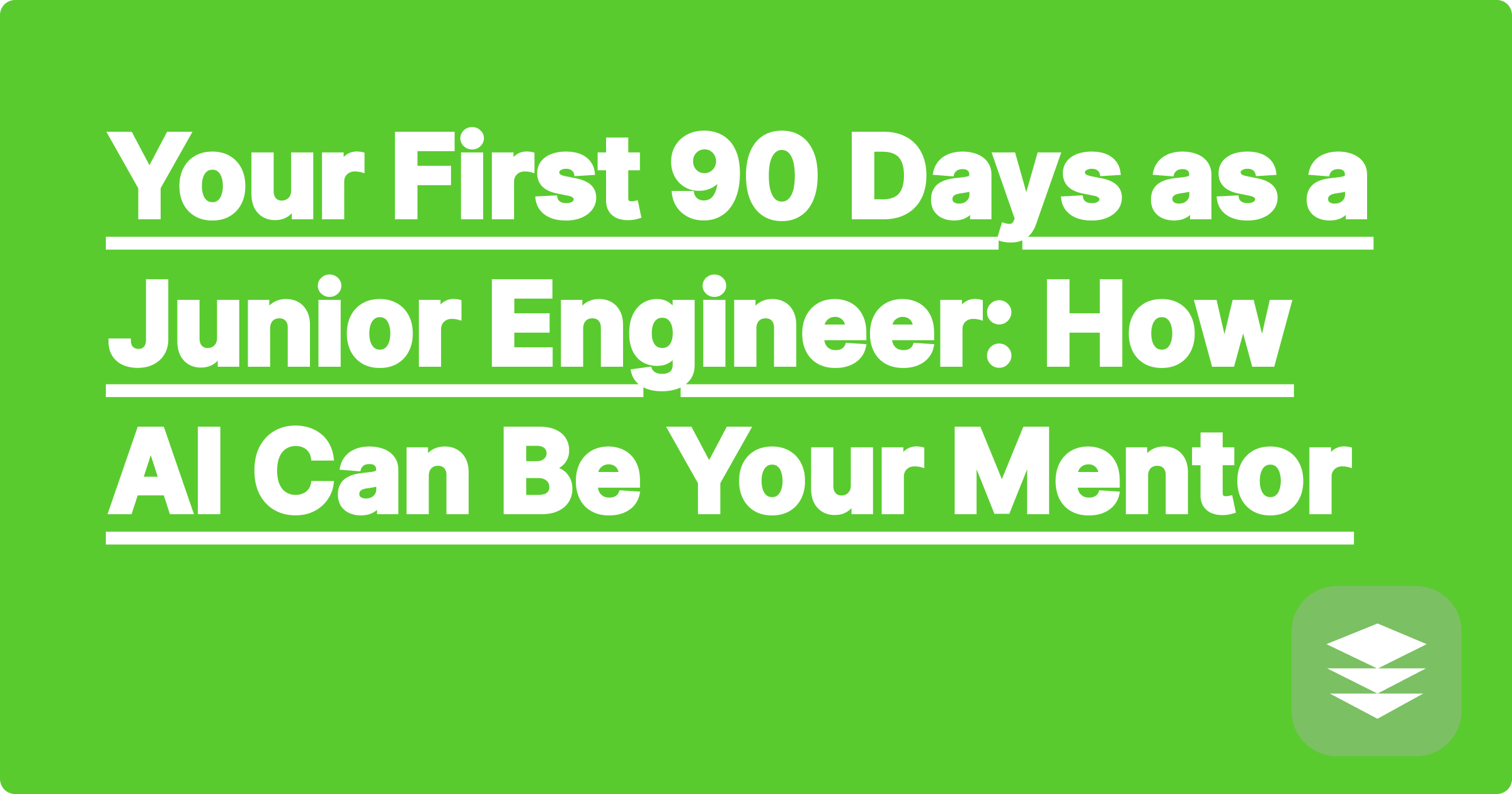
You did it. You survived your degree, aced the interviews, and landed your first job as a junior engineer. Congratulations! Now comes the real challenge: the first 90 days. You're expected to learn the company's complex systems, understand a massive, undocumented codebase written by your predecessor, and start contributing—all while feeling like you know absolutely nothing. This "information firehose" experience is overwhelming, and it's a place where even the brightest graduates can struggle.
Your senior engineers are busy. They don't have time to answer every single "dumb question" you have. But what if you had a mentor who was available 24/7, had infinite patience, and could help you decipher even the most cryptic code or report? This is the role an AI assistant can play. For a new software engineer, a guide powered by AI is the ultimate onboarding tool. Here is our best advice for junior engineers: use AI as your personal mentor.
Your first task is often to understand a piece of code that someone else wrote years ago, with zero comments.
You're handed a folder full of your predecessor's project reports and told to "get up to speed."
[Image: A young engineer looking confident at their desk, with the GPAI interface on their screen showing a complex codebase being explained in simple terms. Alt-text: A junior engineer getting advice from an AI mentor about a new software project.]
The first 90 days on the job are less about what you can produce and more about how quickly you can learn. By using AI as your personal mentor, you dramatically accelerate this learning curve. You can answer your own questions, reduce your reliance on senior staff for basic information, and start contributing meaningful work faster. This is the key to making a great first impression and setting yourself up for a successful career.
A: Absolutely not. This is not an academic exam. In the professional world, using tools to increase your efficiency and understanding is not just accepted; it's expected. Using an AI to understand legacy code is a sign of resourcefulness, not a lack of skill.
A: This is a critical question. You should always follow your company's policy on using external AI tools. Many companies have enterprise versions of AI assistants or internal, secure AI platforms for this exact purpose. The principle of using AI to decipher code remains the same, but you must use the tools your employer has approved to protect intellectual property.
The ability to leverage AI assistants is rapidly becoming a core skill for every new engineer. By embracing these tools from day one, you can navigate the challenges of your first job with less stress and more confidence, proving your value to the team from the very beginning.
[Start your career with a secret weapon. Try the GPAI Suite to accelerate your learning and growth. Sign up for 100 free credits today.]
Your First 90 Days as a Junior Engineer: How AI Can Be Your Mentor
How to Prepare for a Technical Interview Using Only Your Own Course Notes
The 'Lazy' Way to Write Weekly Progress Reports for Your Boss
From Academia to Industry: Translating Your Thesis into a Business Proposal
How to Learn a New Programming Language in a Weekend with an AI Coach
Using a Chemistry Solver to Create the Perfect Cocktail Recipe
The Physics of Fantasy Football: Using an AI to Analyze Player Stats
Designing a Video Game Level with a Topology Homework Assistant
Can an AI Notetaker Summarize a Beethoven Symphony? An Experiment in Music Theory
The Algorithm of Storytelling: Using AI to Deconstruct a Blockbuster Movie